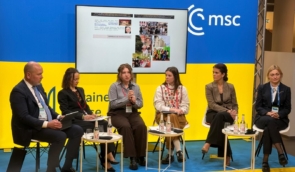The world must not get used to war: the Third International Conference “Crimea Global” was officially opened in Kyiv
Today, November 17, the Third International Conference “Crimea Global. Understanding Ukraine through the South” began with a solemn opening ceremony. The event gathered more than 200 participants from around the world, including leading experts, scholars, journalists, human rights defenders, opinion leaders, and representatives of international organisations.
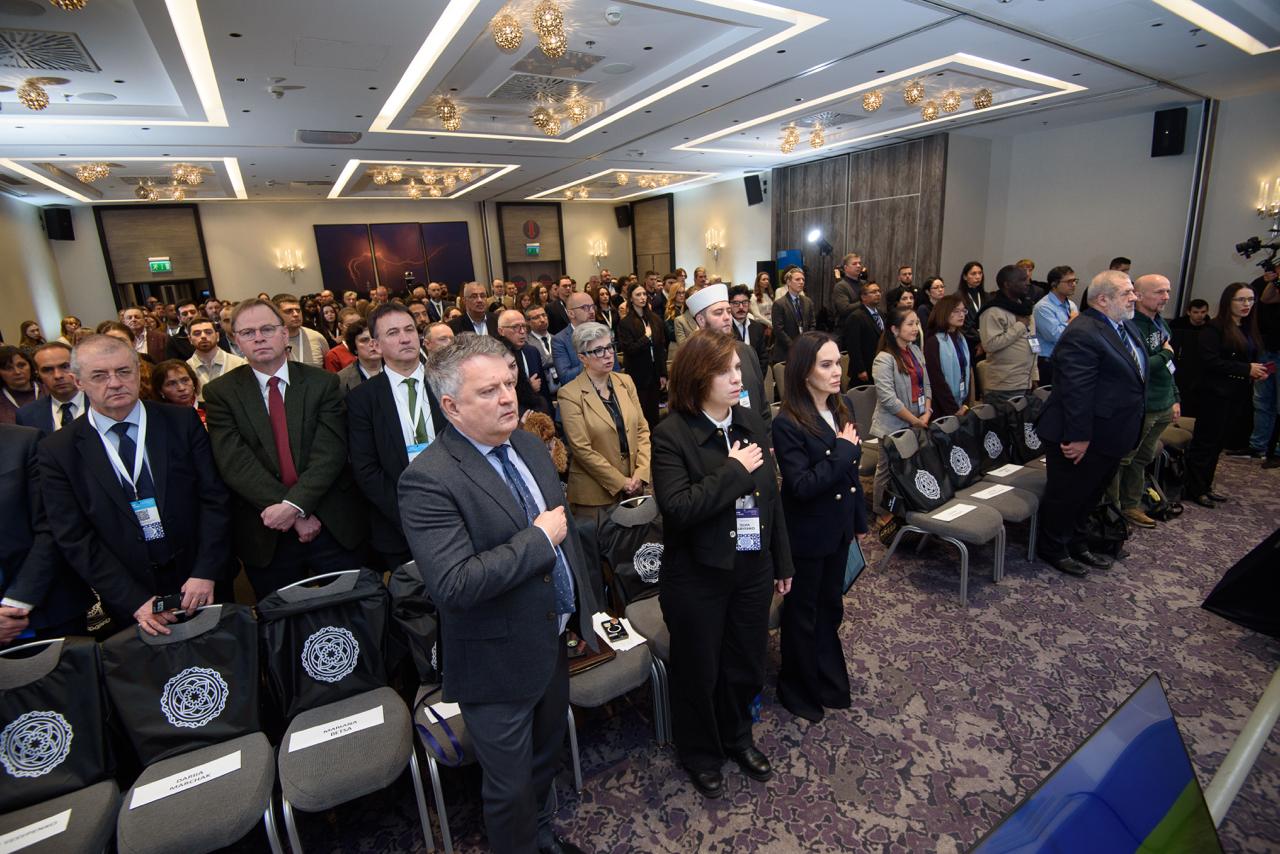
Those addressing the attendees included Iryna Mudra, Deputy Head of the Office of the President of Ukraine; journalist Dmytro Khyliuk; First Deputy Minister of Foreign Affairs of Ukraine Serhii Kyslytsia; and Chairman of the Mejlis of the Crimean Tatar People Refat Chubarov.
The moderator of the opening session was Tetiana Pechonchyk, Chair of the Board of the Human Rights Centre ZMINA.
 Tetiana Pechonchyk, Olha Kuryshko
Tetiana Pechonchyk, Olha KuryshkoOlha Kuryshko opened the Crimea Global conference, emphasising that it has become a platform for honest dialogue and meaningful engagement between Ukraine and countries in Asia, Africa, and Latin America, going beyond mere political statements.
“The world must not get used to war as something normal. Any attempt to legitimise the occupation is unacceptable and dangerous for the entire international order. We continue to emphasise that Crimea is Ukraine, and the struggle for its de-occupation is part of the global struggle for justice and the right of every nation to be free”.
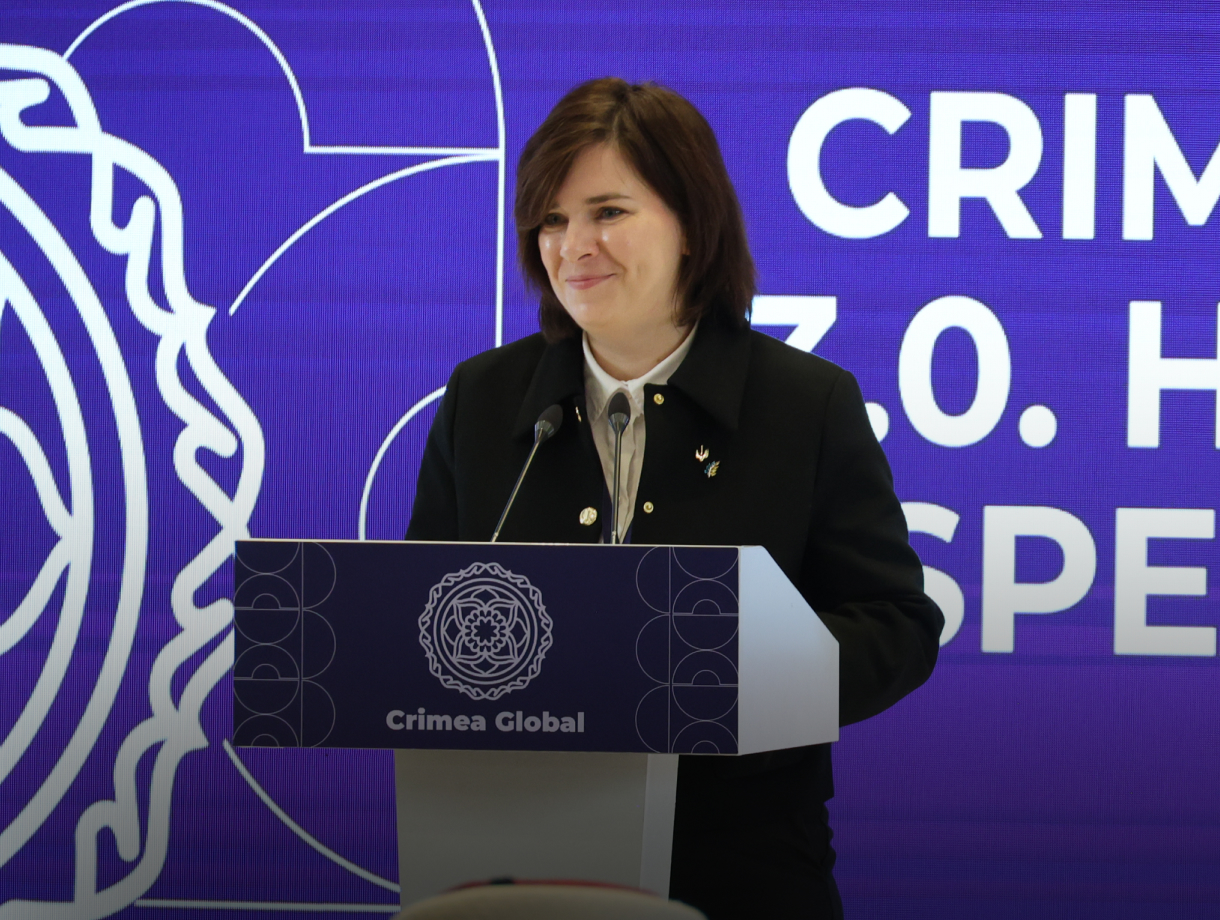 Olha Kuryshko
Olha KuryshkoIryna Mudra addressed the community of states experiencing external interference, explaining that Russia is currently implementing a strategy of influence through information aggression, manipulation, and humanitarian pressure, particularly in Africa and Asia, where it is using food leverage and technological blackmail. “The occupation of Crimea in 2014 was the first attempt to change European borders since World War II, with Russia using manipulative referendums, repression, and disinformation against Crimean Tatars and Ukrainians,” Mudra emphasised.
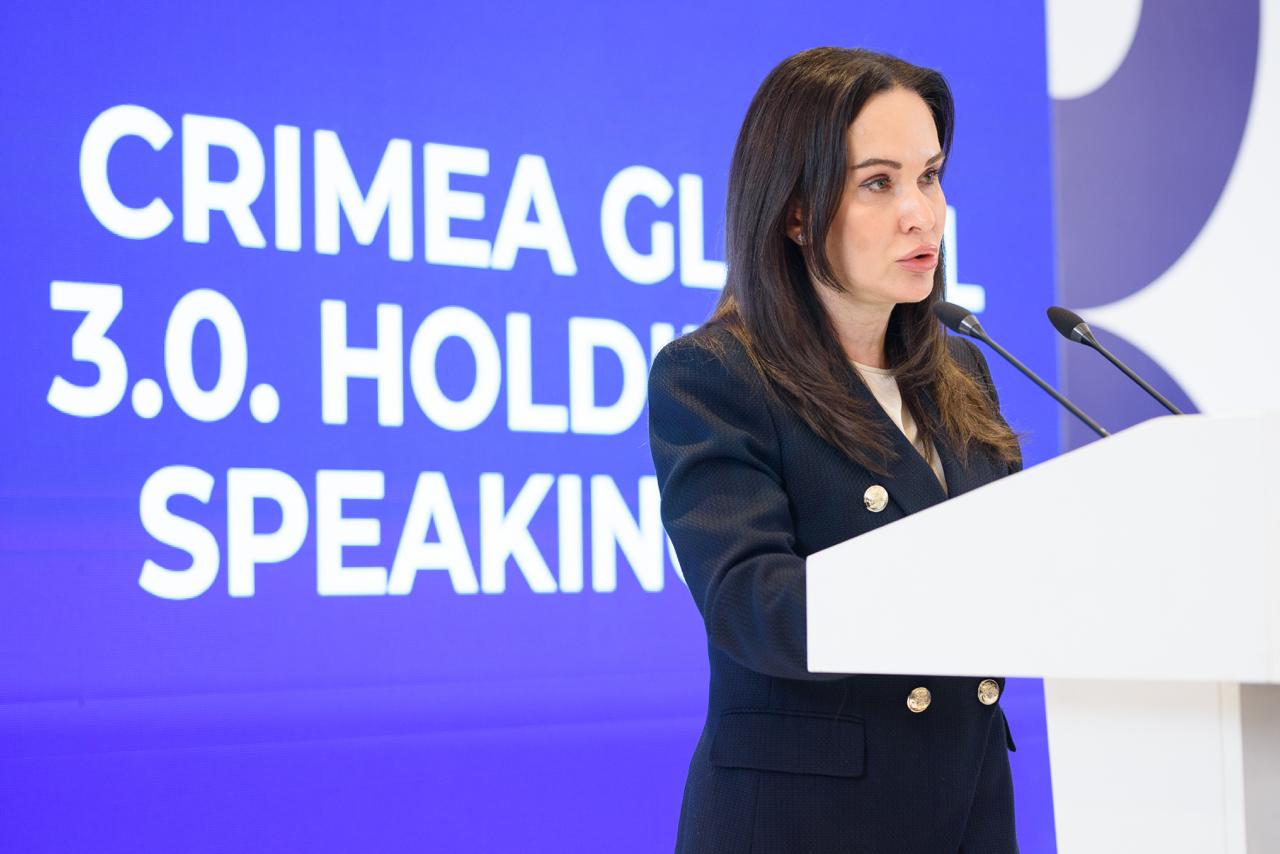 Iryna Mudra
Iryna MudraDmytro Khyliuk noted the cruel treatment of civilians, pointing out the torture of all those held captive, regardless of age or status, in Russian prisons. He emphasised that, in addition to physical violence by the Russian occupiers, psychological pressure was also applied: the Russians played Russian and Soviet songs, and those who, in the opinion of the occupiers, performed them poorly were tortured and humiliated even more severely. He noted that Russia currently holds over 2,000 civilians who are not combatants, but were initially kidnapped for the purpose of exchange and are now being held as leverage.
“We cannot free the hostages by military means, but we can talk about it. And I appeal to representatives of foreign states. I want to ask them to convey this message — Russia is lying. And I want your governments to use various diplomatic channels, both formal and informal, to put pressure on Russian officials to release the prisoners”.
 Dmytro Khyliuk
Dmytro KhyliukSerhii Kyslytsia stated that Russia’s war against Ukraine is a neo-colonial war, and also emphasised that for the Kremlin, Ukrainians are a resource for restoring an imagined empire. He reminded the foreign guests that the Russian occupation of Ukrainian territories is accompanied by the closure of Ukrainian schools, environmental damage, the removal of cultural valuables, massive human rights violations, and more.
“For Russia, Crimea is a resource. A resource for imperial ambitions, for military might in the Black and Mediterranean Seas, for seizing new territories and attempting to return to the world of the 19th century, where the greatness of a state is supposedly determined not by the dignified life of its citizens and the development of technologies, but by nuclear weapons and the ability to enslave other nations”.
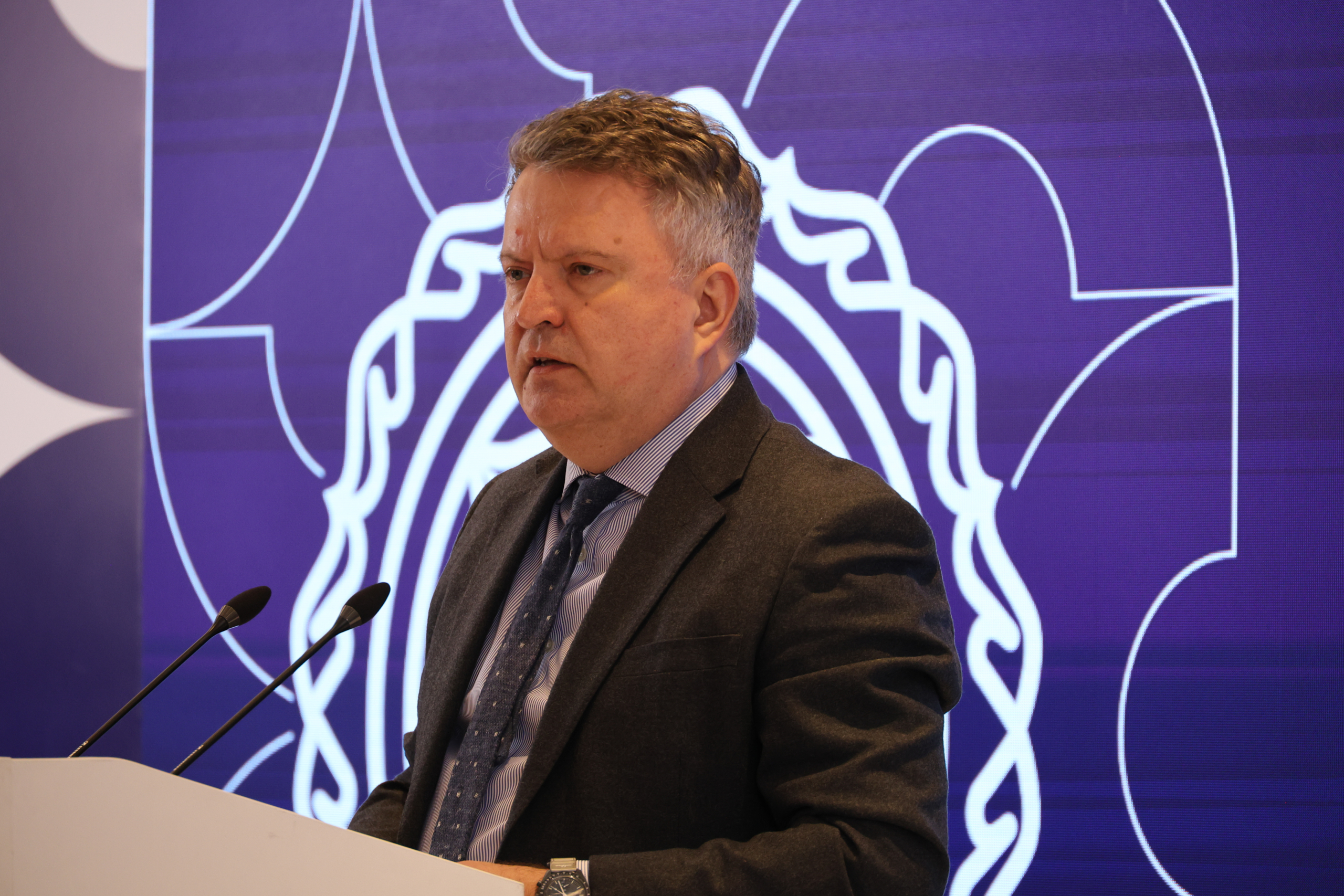 Serhii Kyslytsia
Serhii KyslytsiaRefat Chubarov, in turn, reminded that side-by-side with Ukrainians, the sovereignty of Ukraine is being defended by Crimean Tatars, Poles, Romanians — people of different backgrounds and faiths, but united by a common goal.
“In February 2014, we were unable to prevent the occupation of Crimea by Russian troops, and in 2022, we witnessed a full-scale war. Now, we cannot conclude this struggle without the liberation of Crimea, other occupied territories, and the restoration of Ukraine’s territorial integrity. On the peninsula, the Crimean Tatars, ethnic Ukrainians, and citizens of Ukraine of various nationalities are resisting the invaders and awaiting their liberation. I believe we will liberate them, and we will liberate Crimea”.
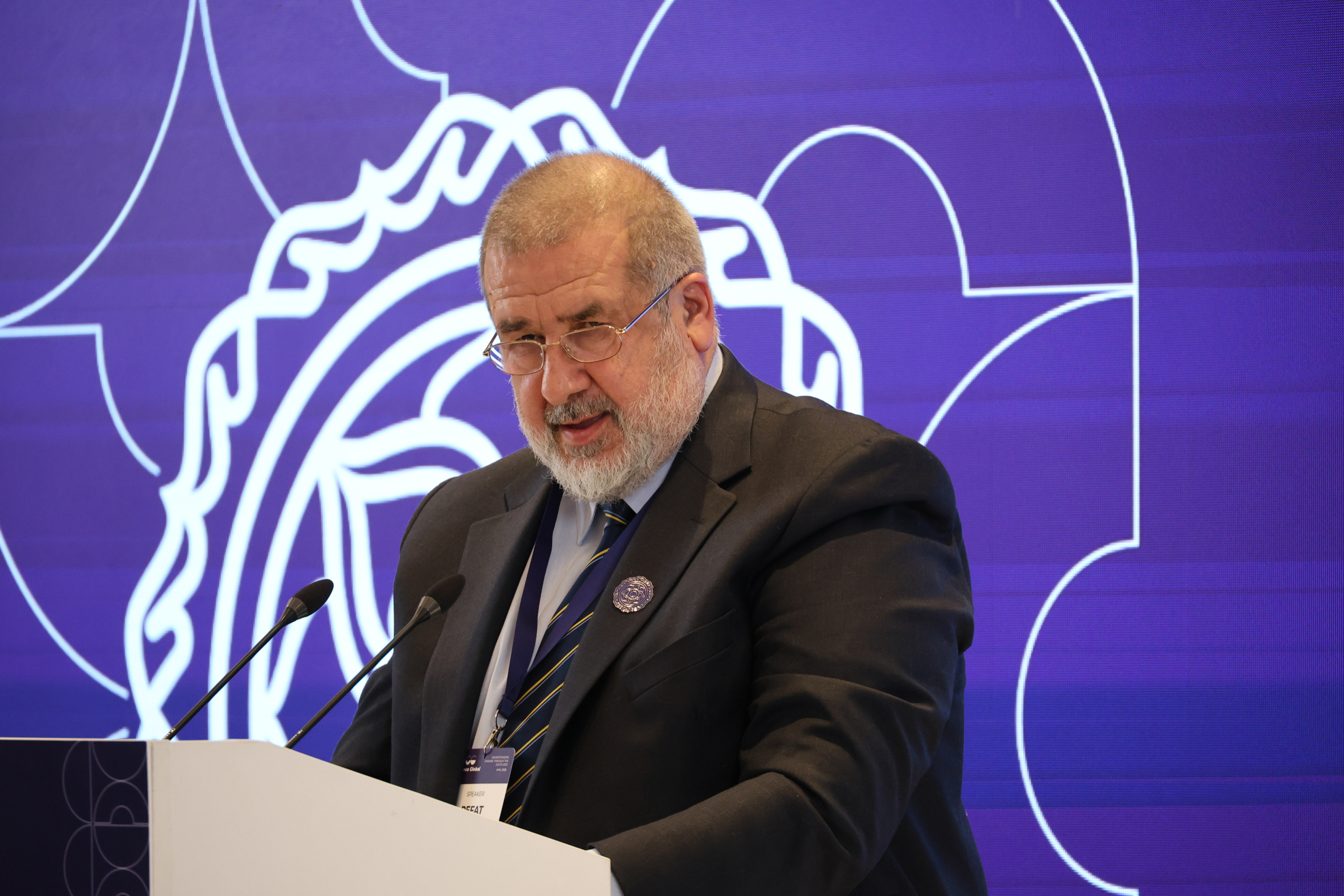 Refat Chubarov
Refat ChubarovОn November 14, the conference participants visited Lviv, where they met with Lviv Mayor Andriy Sadovyi and his First Deputy Andriy Moskalenko at the Lviv City Hall, honoured the memory of the fallen defenders of Ukraine at the Field of Honor at Lychakiv Cemetery and visited the UNBROKEN National Rehabilitation Center and the Prosthetics and Orthotics Center.
On November 15, the participants of the international conference “Crimea Global. Understanding Ukraine through the South” continued their visit to Ukraine and travelled to Kharkiv, where they met with the leadership of the Kharkiv Regional Military Administration, visited Pivnichna Saltivka and saw the scale of the destruction from the Russian attacks. International experts also learned about Kharkiv’s modern security solutions and visited an underground school — the Korotych Lyceum. Members of the delegation honoured the memory of the children killed in the war and laid toys at the memorial symbolising lives cut short by the conflict.
On November 16, Guests of the “Crimea Global” conference arrived in Kyiv, where the Office of the Mission of the President of Ukraine in the Autonomous Republic of Crimea / Crimea Platform hosted a closed-door roundtable titled “Ukraine’s Resilience in War: Challenges, Responses, and International Support.”
Organisers: Mission of the President of Ukraine in the Autonomous Republic of Crimea / Office of the Crimea Platform, Human Rights Centre ZMINA, Media Initiative for Human Rights.
Partners: Ukrainian Institute, PEN Ukraine, Truth Hounds, Media Center Ukraine, Transatlantic Dialogue Center.
The initiative is organised with the support of the Partnership Fund for a Resilient Ukraine (PFRU), the International Renaissance Foundation, the Prague Civil Society Centre, the Norwegian-Swedish Askold and Dir Fund, administered by ISAR Ednannia, and UN Women.
Photos: Mission of the President of Ukraine in the Autonomous Republic of Crimea.
If you have found a spelling error, please, notify us by selecting that text and pressing Ctrl+Enter.

